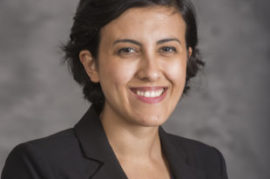During the McDonnell International Scholars Academy symposium session on “Asset Building for Retirement Security,” we were presented with the examples of the Australian and Singaporean social security systems.
Even though both systems are highly praised, I was surprised to realize that the discussion offered a counter-intuitive dynamic. While Australia was optimistic about the shift towards individual accounts and a lower fiscal burden, the presentation regarding the case of Singapore –a highly praised social security system– focused on the problems of lack of transparency and consistency in the public policies of the country across time. It seemed like there existed some consensus that countries should be moving towards the individual account system (in any of its many flavors), given the current situation of higher longevity and decreasing birth rates.
But there is one key aspect of the discussion and the implementation of this new system that was not emphasized enough. That is, the role of expectations. When presenting a system like this to a country, the public usually cares about one particular variable: How large is my pension going to be?
An Individual Account Pension System sets the final pension as a percentage of the salary each individual received before retirement (called pension replacement rates). In particular, the Australian superannuation system is expected to achieve a replacement rate of 65% by 2050. And this is indeed very promising. But what if it doesn’t?
One of the characteristics of this system, contrary to what happens in a government-funded retirement scheme, is that the true replacement rate will only be revealed after 30-40 years of its introduction (once the first young beneficiaries retire). At that moment, if the initial promise is not met and pensions turn out to be too low, this will cause a great deal of social unrest and put pressure on the fiscal budget (the very situation this system is trying to avoid).
Achieving high replacement rates is intimately tied to a formal and efficient labor market. If people stop contributing to their funds for extensive periods of time (either because they are self-employed, unemployed or work in the informal sector), their accrued wealth will be dramatically diminished.
While admittedly Australia shows low unemployment rates and little difference between male and female rates, this is not the case in many countries, especially in the developing world. Hence, transparency about the inherent risks of this type of pension system, as well as acknowledging that the government will probably have to step up to provide minimum pensions is key. This will anchor expectations and provide a more accurate cost-benefit analysis, which will reduce the likelihood that moving towards this system will turn out to create a future liability.

Photo by Mary Butkus/WUSTL Photos
Guest Blogger: Rodrigo Moser, McDonnell Scholar and Olin PhD student in Finance.
The McDonnell International Scholars Academy provides the network with which Washington University in St. Louis incubates new ideas and mentors future leaders. Through our partnerships, we lead groundbreaking research projects and prepare our Scholars to be effective leaders in a global community.
Read more from the McDonnell Scholars






